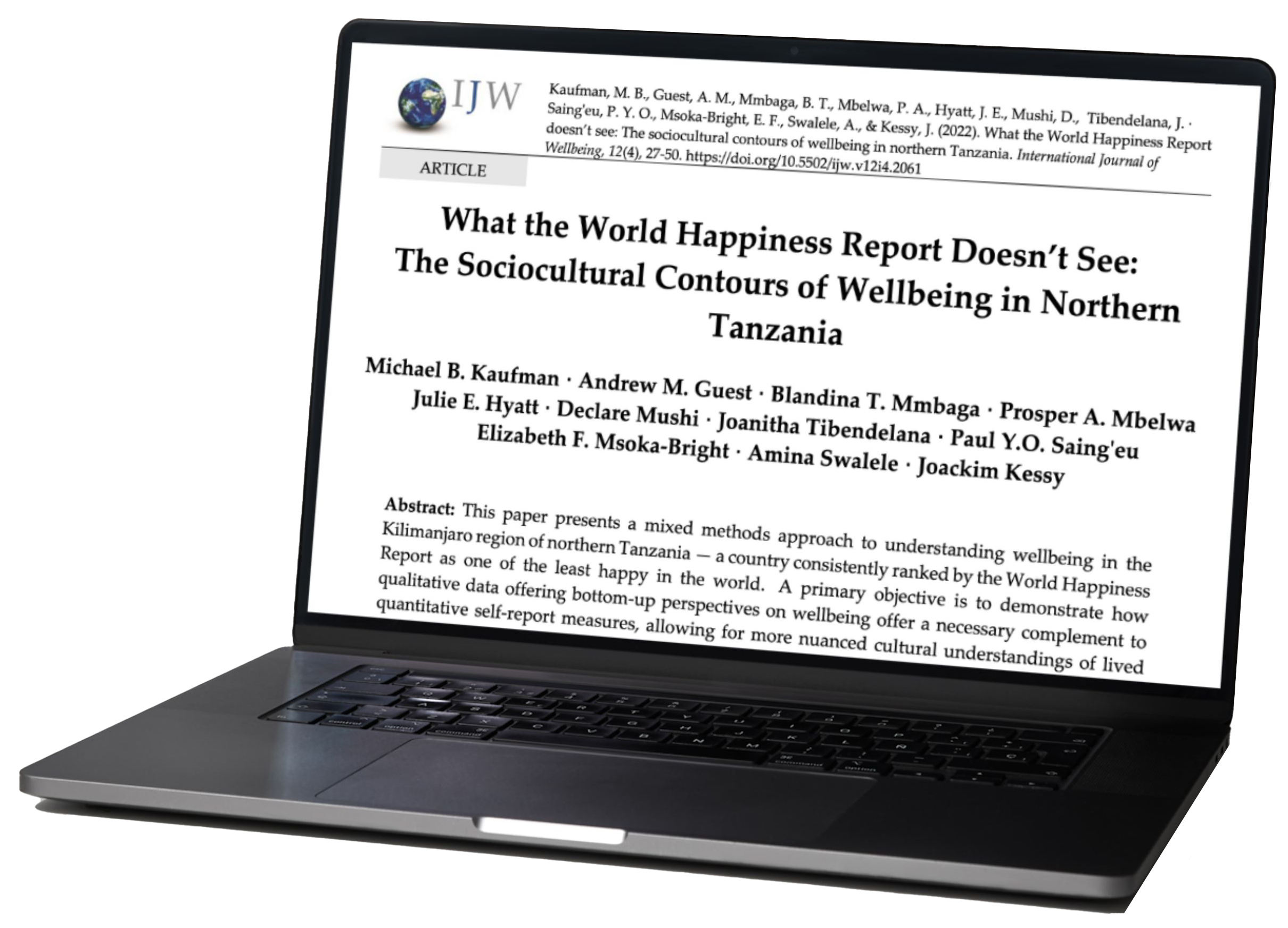Reexamination of World Happiness Report’s Findings and Global Methodology in a Low Income Country
Assessed usefuless of World Happiness Report for guiding policy.
Paid for by: US State Department
Replicated World Happiness Report study of happiness in a region of Tanzania with rigorous secondary assessment methodologies.
Key Findings
The World Happiness Report claims to offer a sound comparative picture of countries in terms of their happiness, but evidence from Tanzania indicates that the Report:
Claims to serve as an alternate to economic indicators of a country’s well-being, but its chief measure, Cantril ladder, significantly correlates with wealth, favoring wealthy countries and disfavoring poor countries.
Overaggregates and homogenizes local reality, missing profound differences between demographic groups within regions and countries.
Asks respondents to report their happiness on a scaled measure (Cantril ladder) that is culturally alien to most non-Western respondents and misunderstood by many respondents with a primary school education.
Elevates a Western interest in happiness to a global concern and then rank orders countries without sufficiently acknowledging the cross-cultural limitations of this notion of well-being in non-Western contexts .
The World Happiness Report is useful for detecting broad trendlines in a population’s experience but its usefulness for guiding policy is overshadowed by its limitations.
Explore more case studies
